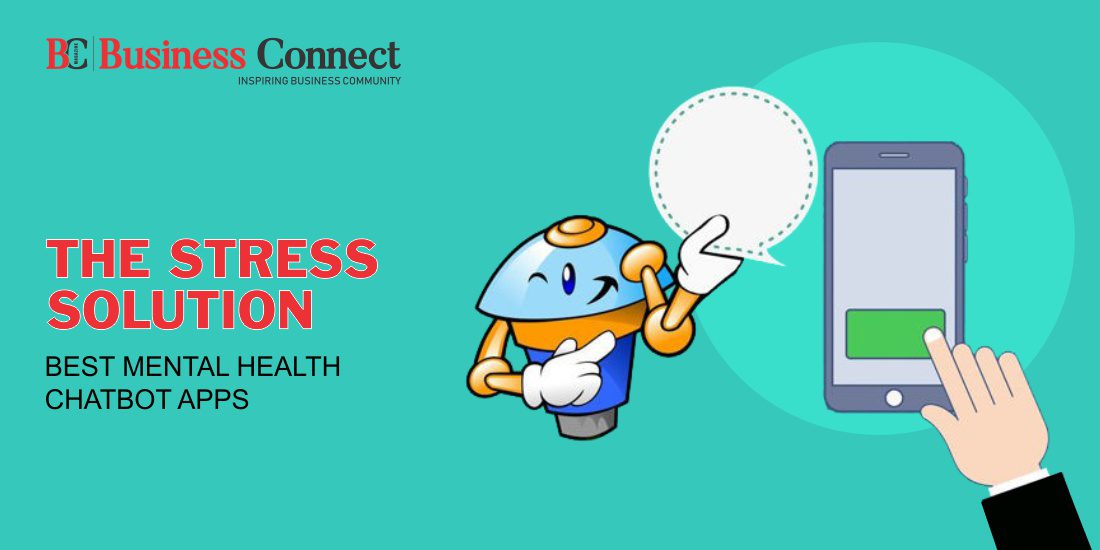The Stress Solution: Best Mental Health Chatbot Apps
For people in general or entrepreneurs, chatbots nowadays can be used to treat a variety of psychological issues such as tension, anger, depression, and so on. Psychiatrists may use chatbots to cure these diseases on their own time and under their circumstances.
India has just five thousand psychologists and two thousand professional psychiatrists, according to the World Health Organization (WHO). That, even though 5.6 crore people out of a billion in the country suffer from some kind of mental illness. It’s a major issue for which there is currently no solution. In this case, mobile apps and chatbots have emerged as a practical means of providing relief to people suffering from psychological issues, requiring only internet access. Chatbots are applications that allow you to chat in a similar way to how you would in WhatsApp or Messenger. The difference is that there is no person in front of the machine; instead, there is a bot (software robot) that is most likely using artificial intelligence to improve accuracy.
Chatbots and smartphone applications are usually available for free. Yes, if you want to use a service that isn’t available for free, you might have to pay a charge. For instance, one-on-one consultation with a counsellor or a coaching service that provides ongoing guidance. The main thing is that you always have a way to deal with depression, despair, anger, tension, and a slew of other popular and serious issues in your own time, place, and circumstances.
Every psychological stumbling block is caused by another problem. Sometimes it’s complicated, and other times it’s straightforward. People, on the other hand, seldom talk about their issues with others. Issues with love, problems between husband and wife, workplace problems, and so on. Some people face similar issues as a result of their behaviours, nature, or other factors. Then others are who are confronted with a psychological challenge as a result of a life event. What is the problem with addressing what you find difficult to discuss with human beings with a lifeless computer, mobile app, or a chatbot? This technical counsellor may be contacted at any time of day or night to express your thoughts in private.
- iWill ePsyclinic is one such chatbot that can analyse the answers to a few dozen questions to provide an early assessment of what a patient’s issue is, how serious it is, and what kind of help he or she needs. It was created by an organisation that has 35 psychologists on staff, with another 15 professionals available as freelancers if needed. In India, it is said to have 50,000 downloads. It is to be anticipated that since it was created by an Indian, it would have a better understanding of the Indian situation. He keeps track of his users’ behaviours, behaviour, food, sleep patterns, moods, and thoughts, among other things, and gives them advice as needed. He links them with his psychiatrists when necessary, who continue the recovery process.
- Woebot Health is a mental health chatbot created in San Francisco, California. India makes extensive use of it as well. You must first answer a series of questions so that he can get a sense of your mood. The majority of users think it’s a good idea to look into it. He can sense your mood, for example, and if you’re irritated, he’ll try to lighten the mood by using amusing words. It is based on Cognitive Behavioral Therapy (CBT), which is an evidence-based therapeutic technique. Woebot classified three of a user’s thoughts as negative and assisted him in thinking of three other constructive thoughts, according to one user.
- Wysa: your safe space in this difficult time. Joe Agarwal and Ramakant Vempati, a married couple, created this artificial intelligence chatbot. These individuals desired that a solution be sought until the psychological issues were out of control. It, too, is based on clinical behavioural therapy, similar to iWill. It is supported by a team of 25 individuals, eight of whom are mental health experts who may serve as guides or coaches. He grouped the interactions he recorded with millions of people into groups. During these discussions, an effort is made to understand the trend that occurs, as well as the relationship between psychological issues such as tension, anger, and depression, among others. The diagnosis and outcomes of Wysa and other chatbots will become more reliable as the database expands.
Some issues arise as a result of the procedure. Is it true, for example, that the chatbots we think of as inanimate have no one behind them? This means that the consumer who does not tell anyone about his issue is walking here in complete privacy. But who knows what’s going on behind the app’s interface? Discussions with them are aimed at determining who they reach and how they will be used in the future. You’re probably aware that there’s a lot of concern about the abuse of data gathered on the Internet and privacy violations. The second concern is that the information would be misappropriated by a third party.
What is the system’s level of safety in terms of keeping them safe? Third, humans are continually expanding their intelligence, expertise, and abilities, but can software that is based on rules keep up with them? The response to the third question is clear: they are currently being used as a connection before reaching a human expert, rather than as a replacement for humans. The creators of the other two challenges assure them that they will be secure. However, in the users’ best interests, independent confirmation of these statements is needed.
Also Read, Benefits of Laughter Therapy


